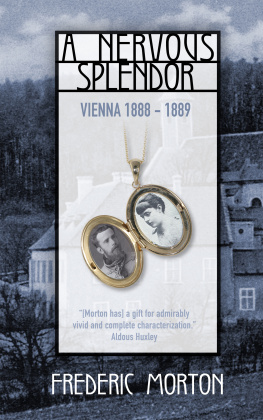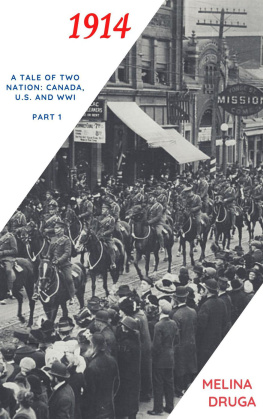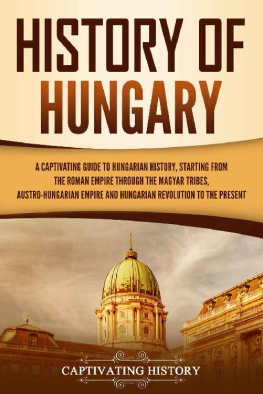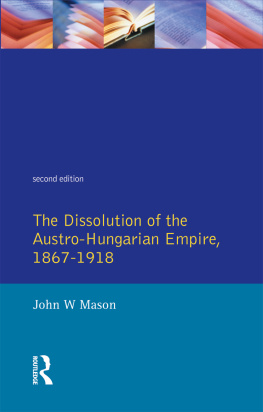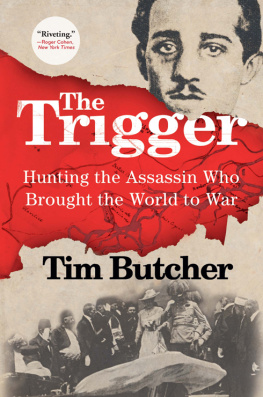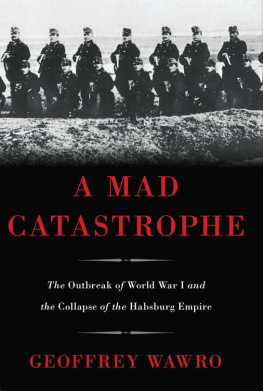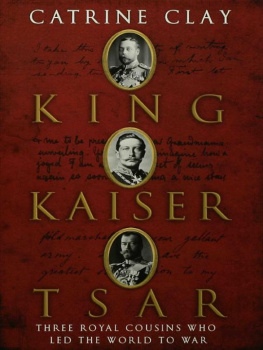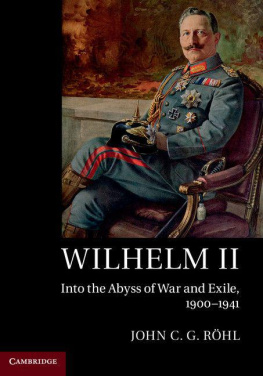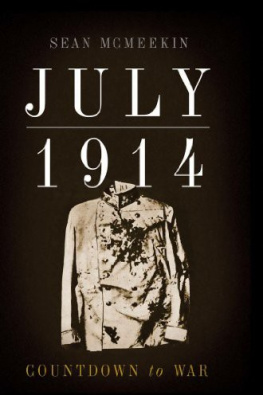To Charles and Kathryn,
On the occasion of their marriage
All images from the plate section are courtesy of the Library of Congress
First published 2014
Amberley Publishing
The Hill, Stroud
Gloucestershire, GL5 4EP
www.amberley-books.com
Copyright Gareth Russell, 2014
The right of Gareth Russell to be identified as the Author of this work has been asserted in accordance with the Copyrights, Designs and Patents Act 1988.
All rights reserved. No part of this book may be reprinted or reproduced or utilised in any form or by any electronic, mechanical or other means, now known or hereafter invented, including photocopying and recording, or in any information storage or retrieval system, without the permission in writing from the Publishers.
British Library Cataloguing in Publication Data.
A catalogue record for this book is available from the British Library.
ISBN 9781445634333 (PRINT)
ISBN 9781445634395 (eBOOK)
Typesetting and Origination by Amberley Publishing.
Printed in the UK.
Contents
Acknowledgements
The majority of this book was written in Belfast, the regional capital of a section of an island that lies on the western edge of the continent that was buffeted by the storms of the global tragedy of the First World War, but it was completed in New Haven, Connecticut. I would like to extend my thanks to the Linen Hall Library in Belfast, the Bodleian Library in Oxford, and the Berkeley College Library at Yale for providing atmospheres so conducive to work and for their wonderful resources which made writing this book both a challenge and a pleasure.
I very much appreciate the help and encouragement offered by so many people including Nicola Gale, my editor at Amberley, and my parents Ian and Heather, as well as Lauren Browne, Antonia Ede, Claire Handley, Catherine Maxtone-Parker, Dr Hannah McCormick, Rose Morgan, Eric Spies and Tom Woodward, with whom the idea for this book was first discussed. This book was made possible by the many excellent works of scholarship that have been undertaken in the century since the outbreak of the war, particularly in recent years, as well as the publication of key primary texts by the printing presses at the universities of Oxford, Cambridge, Yale, Harvard and Stanford. All historians stand on the shoulders of giants and this book is no exception; to thank all the academics who have dedicated their lives to making these subjects so wonderful to study would take many pages, men and women such as Professor John C. G. Rhl, who has spent decades unearthing and publishing so many of the vital documents concerning Wilhelmine Germany. However, one more in particular bears special mention having served as a lieutenant-colonel in the Allied occupation of Vienna after 1945, Gordon Brook-Shepherd befriended several members of the Hapsburg family, who had been active in opposing the Nazi annexation of 1938. His acquaintanceship with the Crown Prince Otto brought him into the company of the Dowager Empress Zita, widow of the First World Wars Emperor Karl. Over the course of several decades, Brook-Shepherd persuaded the Empress to commit her memories to paper, as well as to sit through several interviews about the events in Vienna and Budapest during the First World War. Thanks to this, we have access to the personal thoughts and recollections of one of the wars principal royal figures memories that might otherwise have been lost. Although Zitas versions of events were not infallible, all historians studying her husbands reign must be indebted to Gordon Brook-Shepherds diligence and tact in recording them.
Prior to the October Revolution, Russia used the Julian calendar, which was thirteen days behind the Gregorian calendar employed by the West. Hence why the revolution that overthrew the monarchy in 1917 is sometimes referred to as the February Revolution and, less frequently, as the March Revolution. For claritys sake in a book that attempts to set the Russian monarchy in its international context, I have given all the Russian dates in the New Style.
Monarchy is very much the grand synthesis of the personal and political and I have attempted where possible to balance both threads as best I can. Spellings and titles are up to the reader or authors discretion in a book written in English about subjects who spoke German and Russian as their first languages. I have gone for the more Germanic Franz Josef, Karl and Wilhelm rather than Francis Joseph, Charles and William for the Austrian and German emperors. Both the traditional titles used for emperors in Germany and Russia, kaiser and tsar, derive from the Roman Csar, but all three monarchies used the French or English translation of emperor as well. I have mostly referred to Wilhelm II by his most familiar title of Kaiser, the Austrian monarchs as emperors and Nicholas II as the Tsar. I have stuck to referring to Wilhelms wife as the Empress, rather than the slightly more unusual sounding Kaiserin, and like most of their courtiers I have moved between referring to Alexandra as Tsarina and Empress. Most of these courtiers capitalised their sovereigns title when referring to them in the specific and I have followed suit where possible. I have opted for Hapsburg instead of Habsburg and Romanov over Romanoff. Where there was room for doubt I have tried to use titles that are more familiar to an English-language audience, hence why Nicholas IIs son is referred to as the Tsarevich rather than Tsesarevich and his daughters as grand duchesses rather than tsarevnas, in keeping with how many of their tutors and retainers addressed them.
Russians are traditionally given a second name in reference to their fathers name. Nicholas II was Nicholas Alexandrovich, meaning Nicholas, son of Alexander. Nicholass third daughter was Maria Nikolaevna Maria, daughter of Nicholas. For princesses who converted into the Russian Orthodox faith, like the Empress Alexandra, it was customary to give them the patronymic second name of Feodorovna, if their fathers name did not translate into Russian.
Gareth Russell
New Haven, CT
Holy Week, 2014
It may seem to you of this present generation a page of history you have heard about in rather a vague way as belonging to an era before you were born. The Second World War, and the upheavals resulting from it, have pushed the events of the 19141918 War into the background. I consider therefore that perhaps it comes as not amiss that you young people should know something of the tragedies in the lives of us old ones, and what we underwent during those fateful years.
Princess Marie Louise of Schleswig-Holstein (18721956)
Prologue
Oh, George, is the news very bad?
I remember quite well thinking when I was seventeen that I could never be happy again. I mean everybody was unhappy. Because one knew so many people. Every day somebody was killed, you see. It was a real holocaust. It was horrible. I remember that feeling quite well.
Lady Elizabeth Bowes-Lyon (19002002), later Queen Consort to King George VI and mother of Queen Elizabeth II
Every Sunday during the First World War, Princess Marie Louise of Schleswig-Holstein would join her parents and sister for lunch at Windsor Castle with her cousin, King George V. By the summer of 1918, Marie Louise was a handsome lady in her late forties with her sympathies firmly on the British side of the conflict. During tea with the exiled Dowager Empress Eugnie of France, who had been granted asylum in England years earlier, Marie Louise said that if half the stories about the Kaisers activities were true then he deserved to be deposed, to which Eugnie replied, My child, no one who has experienced a revolution would wish even their worst enemy to undergo all the horrors that it entails.


